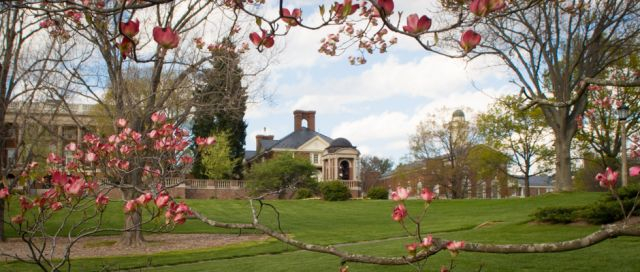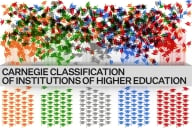You have /5 articles left.
Sign up for a free account or log in.

Sweet Briar College
The controversy is far from over.
That's the word from the Virginia Supreme Court in a decision released Tuesday as it ordered a lower court to again consider granting an injunction that would temporarily stay the closing of Sweet Briar College.
The lower court in April largely denied the injunction.
Sweet Briar, a small women’s college in rural Virginia, has been embroiled in controversy ever since its leaders announced in March it will close permanently this year due to “insurmountable financial challenges.”
Yet not everyone has agreed that the college’s difficulties are insurmountable, and a large contingent of Sweet Briar students and alumnae has advocated for the college’s survival. A county attorney filed suit in a Virginia court, charging that college leaders violated several state laws and failed in their duties to keep the college running.
Amherst County Attorney Ellen Bowyer sought an injunction to stop the college from closing, but Circuit Court Judge James Updike partially denied the injunction, ruling that because the board that governs Sweet Briar is a corporation, Virginia’s Law of Trusts doesn’t apply and the court doesn’t have the authority to halt the closure.
The Supreme Court found Updike’s ruling “erroneous” and ruled that a corporation can also be considered a trust, reopening the door for an injunction. The case has been sent back to the Circuit Court.
Sweet Briar was established with lands from a 1901 will, and Bowyer has argued that Sweet Briar is a trustee of a trust formed through the will. College officials, in their efforts to close, are defying the will, which forbids sale of the bequeathed property, Bowyer asserts.
“I am hopeful that on reconsideration, the circuit court will agree with my position,” Bowyer said in a statement. She hopes to again present her case before Updike this month.
Yet Sweet Briar, in a statement, said the high court’s decision “is unlikely to have significant impact on the pending litigation.” The college noted that the Supreme Court didn't decide on the merits of the case, or on any legal issues. The court ruled that the college can be considered a trust, not that it is one.
“Another hearing in this matter would have been necessary regardless of today’s ruling,” the college said.
In its ruling, the Supreme Court noted that the legal issues surrounding the Sweet Briar case are still evolving.
“In short, the controversy of the college's scheduled closing is far from over, and all agree that the ultimate merits of the controversy are not, at least for today, squarely before this court,” the opinion reads.
The court also extended by nine days an injunction already in place temporarily forbidding the use of donations to pay for expenses related to shutting down the college.
Shortly after the ruling was released, Marcia Thom-Kaley, an assistant professor of music at Sweet Briar and a member of Saving Sweet Briar, a nonprofit formed to keep the college from closing, was on her way to the college’s Bell Tower, champagne in hand. She was meeting other advocates for a celebratory toast.
“We have crossed another legal threshold,” she said. “We have believed all along that if we could get to this point, we’d be in an excellent place to go forward.”
Thom-Kaley acknowledged, however, that there was still a long legal road ahead: “We still have miles to go before we’re home free and we can get about the business of turning this college into something that is sustainable.”
Yet if Sweet Briar advocates prevail in their efforts to temporarily, or permanently, stave off a closing, they will encounter other roadblocks in their quest to save the college -- very few students are left to educate.
Sweet Briar had an undergraduate enrollment of about 561 students in the academic year that just ended. Since then, 134 have graduated and another 231 have requested final transcripts, an indicator that they have transferred to another institution. The college did not admit students for a new freshman class.
“It’s going to be a much smaller student body,” said Elliott Schuchardt, a attorney representing about 15 students, alumnae and parents from Sweet Briar in a separate lawsuit.
Nonetheless, Schuchardt, like other advocates, says he’s optimistic there will be a fall term at Sweet Briar.
Thom-Kaley said the three months since Sweet Briar's closure was announced have been among the most difficult many faculty and students have experienced.
"If we can live though that, we can attract more students to come onto the campus," she said.








